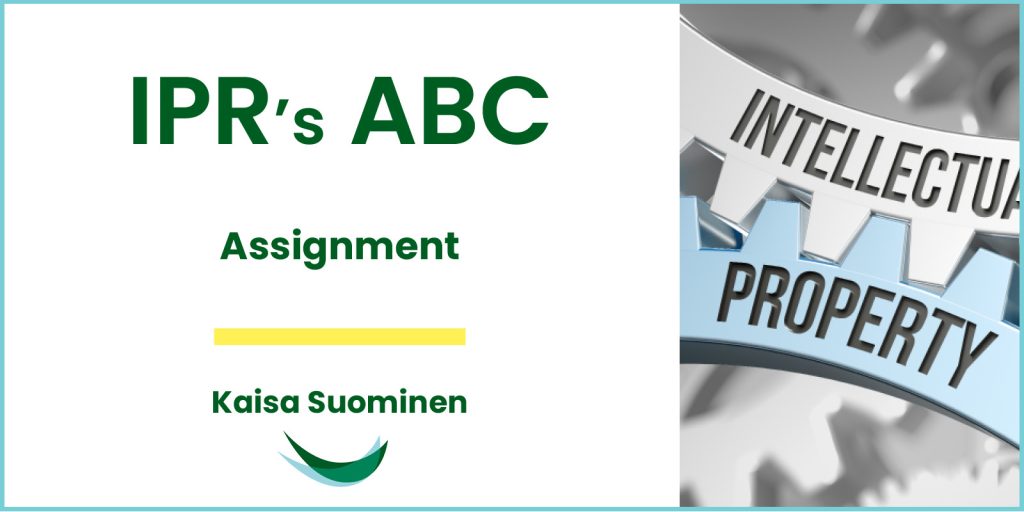An assignment is not a mere formality

- Kaisa Suominen
- –
- News
- –
- 10.3.2022

Who has the right to the invention?
The applicant must have the right to the invention to which a patent is sought. According to the current practice, the inventor, and thus the original owner of the invention, is always a natural person (see for example the decision J 8/20* of the legal Board of Appeal of the EPO, in which an artificial intelligence named DABUS had been named as the inventor; according to the EPO, an artificial intelligence cannot be an inventor).
Depending on the country, the inventor may be under obligation to inform one’s employer of the invention made, and the employer may have the right to the invention, in certain conditions. For example, the Finnish employment invention law is based on this principle. However, if the inventor is not an employee of the applicant, or the requirements of the employment invention law are not fulfilled, the rights to the invention shall be transferred with a separate assignment.
How can rights be transferred?
Most typically the rights are transferred with a simple form, which includes information about which invention is assigned (for example defined by its title and/or claim 1), what rights are assigned (often the invention, right to priority and possibly an application), to whom the rights are assigned, and the name of the assignor, date and signature. In some countries, also a signature of the assignee is required.
An assignment can also made as a confirmatory assignment, which confirms, in a written format, an earlier assignment, such as an oral agreement or assignment based on employment invention law. A confirmatory assignment can also be used when the rights have been transferred based on an agreement which the parties do not wish to file to a patent office. Often such confirmatory assignments are made between two companies, or the assignment of rights has been agreed on in a contract of employment (not possible in Finland).
When the rights must be assigned?
The applicant must have the right to the invention, when the application is filed at the patent office. Thus, the rights must be assigned at the latest on the date of filing, before filing.
What happens if the assignment is not properly done?
In a worst case scenario the application is not valid at all, or the applicant is not entitled to priority (which may lead to a situation where the invention is not novel or inventive). Most of the time any problems relating to assignment are discovered only after grant, when the validity of the patent is assessed in opposition proceedings or nullity actions. At this point of time, the applicant/patentee has thus already used a significant amount of money to obtain protection, and the protection is such that also other parties are interested in it, since they wish to revoke the patent or limit its scope of protection.
Some patent offices require filing of assignment document, some accept a declaration from the applicant or the patent attorney on how the rights have been transferred. Usually the patent offices do not investigate any further, unless it is apparent that there are potentially problems with the assignment of rights. Such a situation could be for example if the priority application has two applicants while only one of them is the applicant in the application under examination, and no information about a transfer of rights between the applicants of the priority application has been provided to the patent office.
In conclusion
An assignment made in proper form and in due time is a very important document for the applicant.
Assignments are also a current topic at the EPO, where a referral on assignment of priority right is pending at the Enlarged Board of Appeal (G1/22). We will let you know more about it when the decision is issued (probably in 2023 or 2024).
*The decision in its entirety is not yet available, but the EPO has issued a communication about the end result of the oral proceedings, i.e. of the decision: https://www.epo.org/law-practice/case-law-appeals/communications/2021/20211221.html

